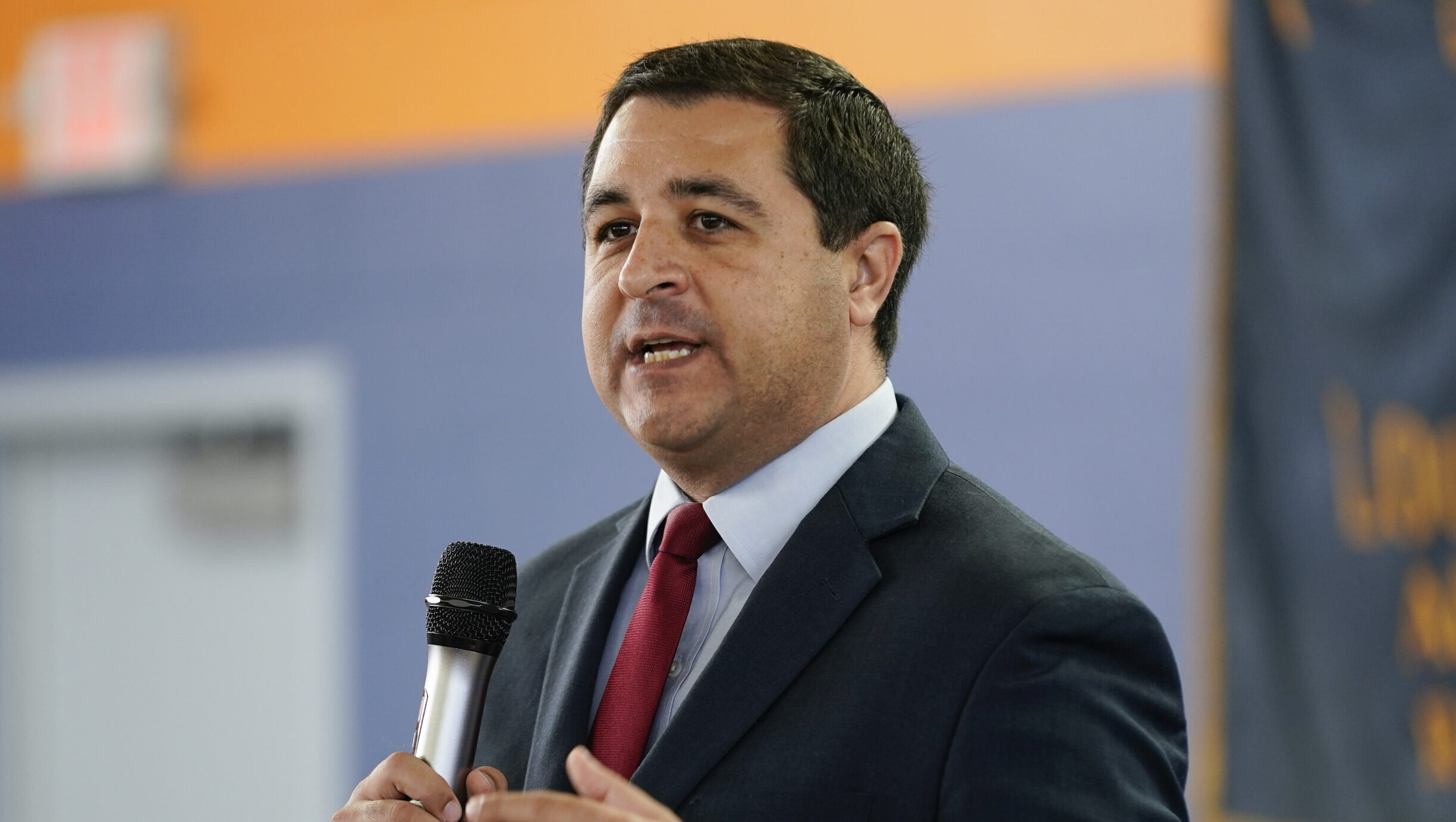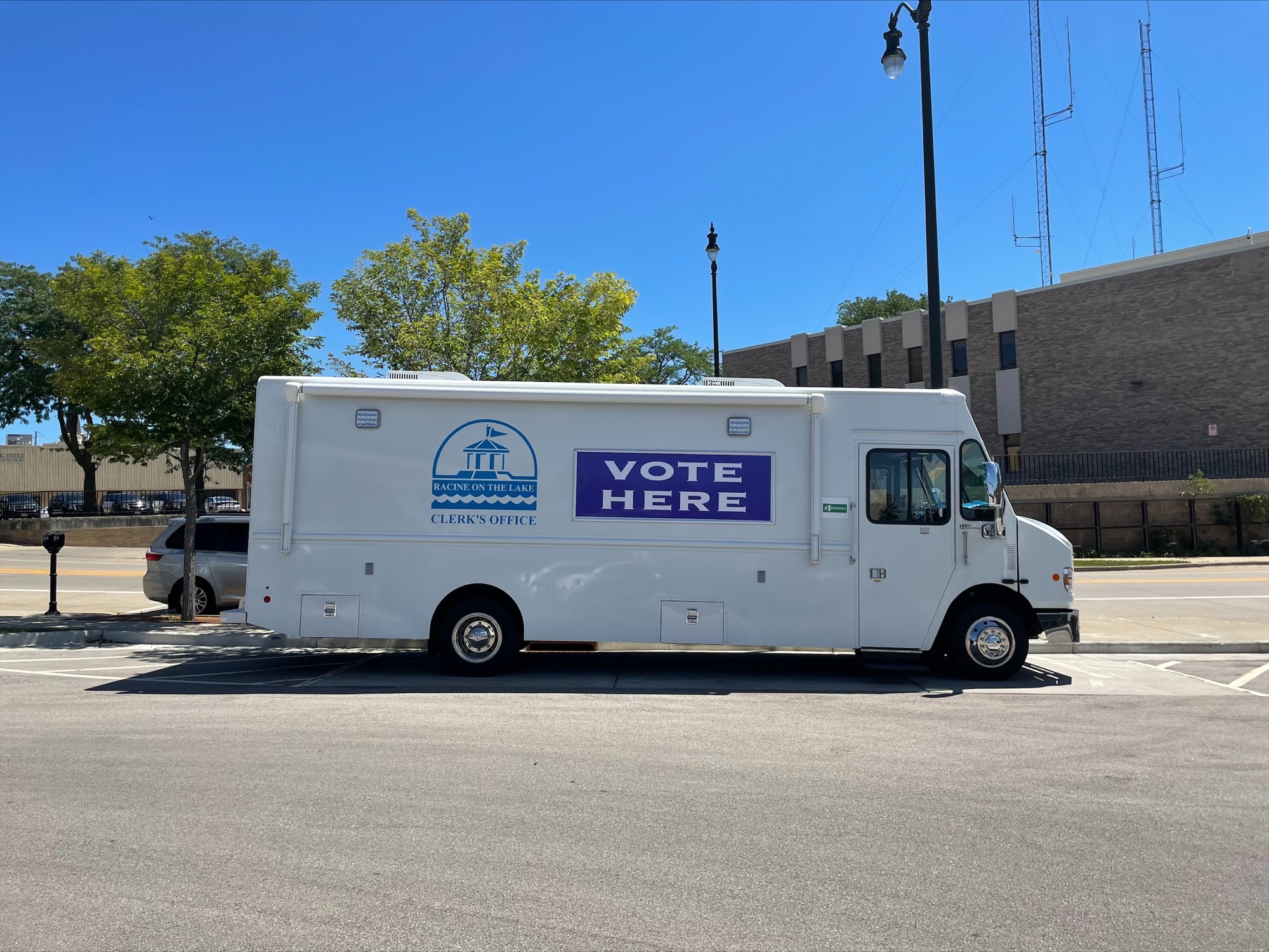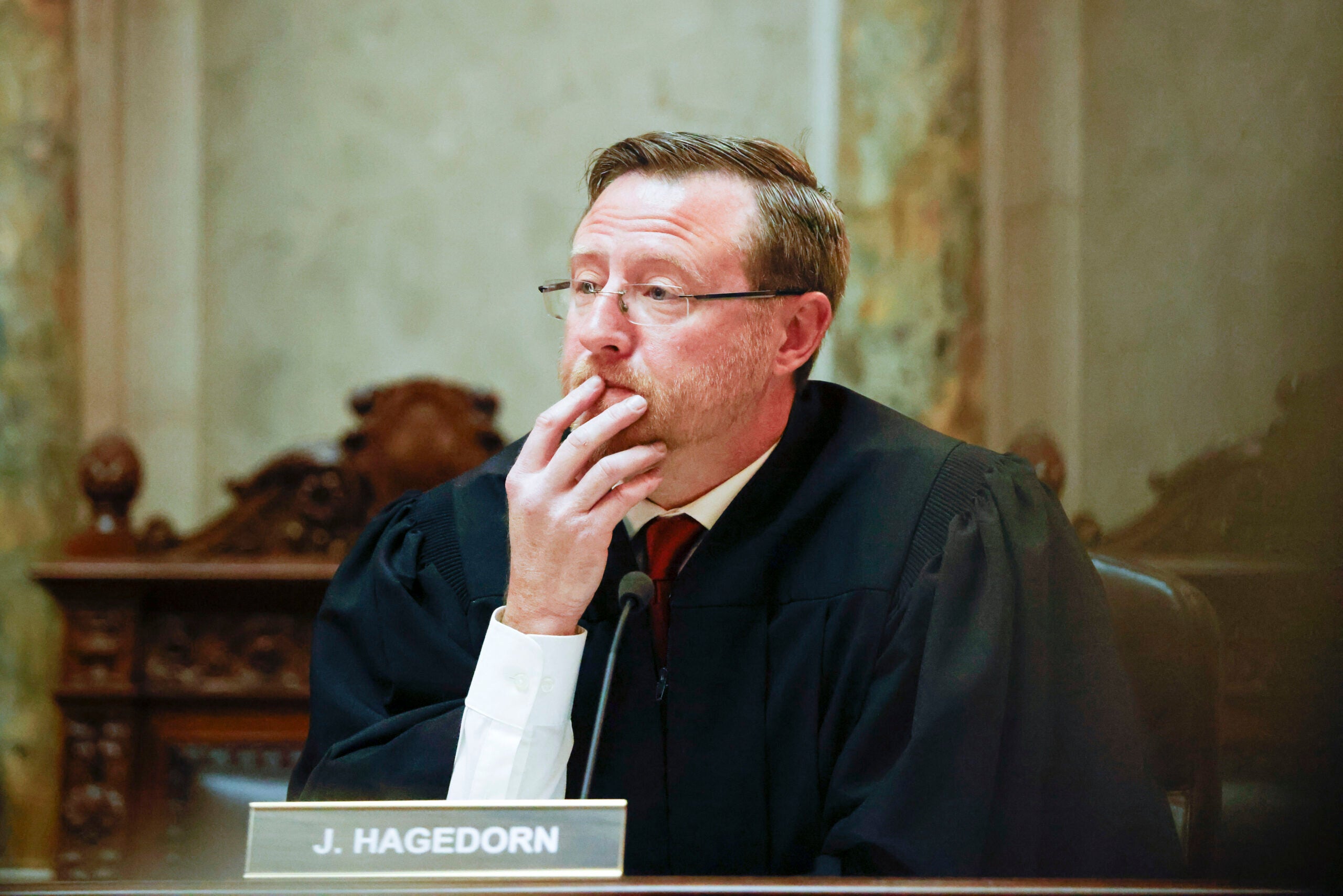There is one ongoing lawsuit challenging the laws passed during December’s lame-duck session of the state Legislature, which put in place a variety of restrictions on the power of Gov. Tony Evers and Attorney General Josh Kaul, as well as limits on early voting in Wisconsin.
The lawsuit is:
- Service Employees International Union (SEIU) lawsuit.
Stay informed on the latest news
Sign up for WPR’s email newsletter.
Three lawsuits have already wrapped up. They are the:
- League of Women Voters lawsuit.
- One Wisconsin Institute lawsuit.
- Democratic Party of Wisconsin lawsuit.
All four lawsuits have seen a number of rulings and appeals.
The current status of all lame-duck laws in Wisconsin is:
- All laws have been allowed to go into effect except one that puts new oversight requirements on documents written by the Evers administration that provide public guidance and information about state laws.
However, the status of the laws could change with another court ruling.
Here’s a summary of the four lame-duck lawsuits’ arguments, where the cases stand now and a look at what’s to come.
League Of Women Voters Lawsuit
Official lawsuit title: The League of Women Voters of Wisconsin et al v. Dean Knudson et al
The argument: The entire lame-duck session is invalid because the power to call an extraordinary session isn’t given to lawmakers in the state constitution. Therefore, lawmakers acted unconstitutionally in calling the session and all action in it should be nullified.
The laws it affects: The entire lame-duck session, including all laws passed during the session and appointments made by former Gov. Scott Walker that were confirmed during the session.
Major events so far:
- Jan. 10, 2019 — Lawsuit filed.
- March 18, 2019 — Arguments heard in Dane County Court.
- March 21, 2019 — Dane County Judge rules in favor of the plaintiffs.
- March 21, 2019 — In response to the ruling, Evers calls for Wisconsin to leave the federal lawsuit challenging the Affordable Care Act.
- March 22, 2019 — In response to the ruling, Evers withdraws 82 Walker appointees.
- March 27, 2019 — Appellate court stays Dane County ruling, but upholds Evers’ right to withdraw Walker’s appointees.
- March 29, 2019 — Evers rehires 67 of the 82 Walker appointees.
- April 9, 2019 — In response to the ruling, Evers and Kaul withdraw Wisconsin from the federal lawsuit challenging the ACA.
- April 30, 2019 — Wisconsin Supreme Court disagrees with appellate court, withdraws Evers’ right to act on Walker appointees.
- May 15, 2019 — Wisconsin Supreme Court hears arguments.
- June 21, 2019 — Wisconsin Supreme Court rules in favor of GOP, ending lawsuit.
What’s to come: The case is complete. The Wisconsin Supreme Court is the highest court in Wisconsin, so after its June 2019 ruling, this state-level lawsuit ended.
One Wisconsin Institute Lawsuit
Official lawsuit title: One Wisconsin Institute, Inc. et al v. Nichol, Gerald et al
The argument: Laws related to early voting and voter ID passed during the lame-duck session violate an earlier federal court ruling related to Wisconsin election laws.
The laws it affects:
- State-imposed time limits on early voting that make it illegal to offer early voting for any longer than 14 days.
- Codifying into law the petition process for getting a valid ID for those who have challenges, like the lack of a birth certificate.
- Language reducing the effective time period for receipts valid for voting from 180 days to 60 days.
Major events so far:
- Dec. 17, 2019 — Plaintiffs file motion.
- Jan. 17, 2019 — Federal judge strikes down lame-duck laws outlined in the case, agreeing they violate 2016 district court ruling in case.
- June 29, 2020 — Federal appeals court upholds some of the lame-duck laws, throws out others.
What’s to come: With the June 2020 federal appeals court ruling, this case is complete. The only way to continue it would be an appeal to the U.S. Supreme Court. No such appeal has been filed.
SEIU Lawsuit
Official lawsuit title: Service Employees International Union (SEIU), Local 1 et al v. Robin Vos et al
The argument: Lawmakers violated the state constitution’s separation of powers guarantee by unfairly limiting the authority of the executive branch.
The laws it affects:
- Requirement for lawmakers to approve the state leaving federal lawsuits, such as the challenge to the ACA.
- Language allowing lawmakers to hire private attorneys, rather than use the state Department of Justice to defend state laws.
- Prohibition on the attorney general, saying they can’t settle lawsuits against the state without legislative approval.
- Put in place additional requirements for “guidance documents” issued by the Evers administration (informational booklets, etc.).
- Language allowing lawmakers to suspend administrative rules written by the Evers administration.
- Requirement for legislative approval for seeking or altering federal waivers.
- Requirement for legislative approval for security changes at the state Capitol building.
- Requirement for legislative approval for the Wisconsin Economic Development Corp. to create enterprise zones.
- Requirement for legislative approval for allocation of emergency funds.
Major events so far:
- Feb. 4, 2019 — Lawsuit filed.
- Feb. 21, 2019 — Evers files brief in support of unions’ case.
- March 25, 2019 — Arguments heard in Dane County Court.
- March 26, 2019 — Dane County judge rules in favor of plaintiffs.
- April 20, 2019 — Wisconsin Supreme Court takes over appeal of case, bypassing appellate court.
- June 11, 2019 — Wisconsin Supreme Court grants defendants’ request for stay of Dane County ruling, thereby reinstating lame-duck laws put on hold by that decision.
- June 11, 2019 — In the same ruling, the court took jurisdiction over a few specific parts of the case that had been split off and were preparing to go to trial in Dane County. That trial was canceled after the state Supreme Court action.
- Oct. 21, 2019 — Wisconsin Supreme Court hears arguments in the case.
- July 9, 2020 — Wisconsin Supreme Court rules in case, striking down some lame-duck laws and upholding others. The court also sent some elements of the lawsuit back to the lower court, where more arguments could be held.
What’s to come: In its July ruling, the Supreme Court sent some laws outlined in the case back to the circuit court for further evaluation. The circuit court could hear more arguments in the case, or accept amended complaints or briefs. No date has been set for such action.
Democratic Party of Wisconsin Lawsuit
Official lawsuit title: The Democratic Party of Wisconsin et al v. Vos, Robin et al
The argument: The lame-duck laws violate the U.S. Constitution’s Guarantee Clause, which guarantees every state the right to a republican form of government.
The laws it affects: All major action during the lame-duck session, including all laws passed and appointments confirmed.
Major events so far:
- Feb. 21, 2019 — Lawsuit filed.
- Sept. 30, 2019 — Federal judge throws out the case, saying it belongs in state — rather than federal — court.
- Oct. 28, 2019 — Appeal filed to the 7th Circuit Court of Appeals in Chicago.
- May 18, 2020 — Three-judge panel on 7th Circuit Court of Appeals hears arguments.
- July 16, 2020 — Three-judge panel rules to uphold district court’s decision to throw out the case, saying Democrats did not have the appropriate standing to bring it to federal court.
What’s to come: With the July 2020 federal appeals court ruling, this case is complete. The only way to continue it would be an appeal to the U.S. Supreme Court. No such appeal has been filed.
Editor’s note: This story has been updated to reflect the decision in the Democratic Party of Wisconsin lawsuit.
Wisconsin Public Radio, © Copyright 2025, Board of Regents of the University of Wisconsin System and Wisconsin Educational Communications Board.




